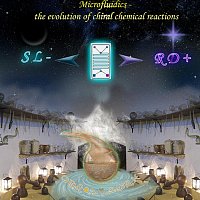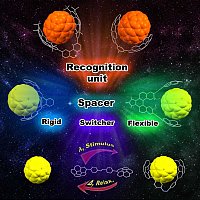Research
Organic Synthesis - Spectroscopy (UV-Vis/Fluorescence) - Supramolecular chemistry - Quantum chemistry - Photochemistry of organic compounds
|
Sensors and actuators for biological systems
|
|---|

The development of effective sensors for detecting specific analytes in various media and organisms is a significant challenge in biochemistry and medicine. The preprogrammed molecular design allows to achieve selective binding and contrasting response in analyte detection. The use of novel structural compositions and interaction mechanisms between system elements opens up vast opportunities for advancing this field.
https://doi.org/10.1016/j.snb.2023.133911
https://doi.org/10.1016/j.snb.2020.128047
|
| Development and optimization of synthetic methods |
|---|

In recent years, there has been an increased focus on efficient, cost-effective, and energy-saving technologies. Among these, (micro)fluidic technologies and mechanochemistry have gained attention for their ability to combine economy, safety, and environmental friendliness with the reproducibility, high yields, and enhanced stereoselectivity of chemical reactions. Processes carried out under continuous flow conditions have demonstrated significant reductions in reaction time and improvements in productivity compared to traditional flask reactions, with some cases also showing improved stereoselectivity. This technology holds the potential to eventually replace conventional flask-based synthesis. Mechanochemistry offers a solution to limitations such as the solubility and stability of initial substances by using mechanical force to drive chemical reactions. This approach could lead to the discovery of new materials beyond the reach of traditional solution chemistry. Additionally, these technologies align with the principles of green chemistry and shows great promise in addressing critical energy challenges.
https://doi.org/10.1016/j.jiec.2022.08.025
https://doi.org/10.1016/j.dyepig.2024.112386
|
Zum Seitenanfang






